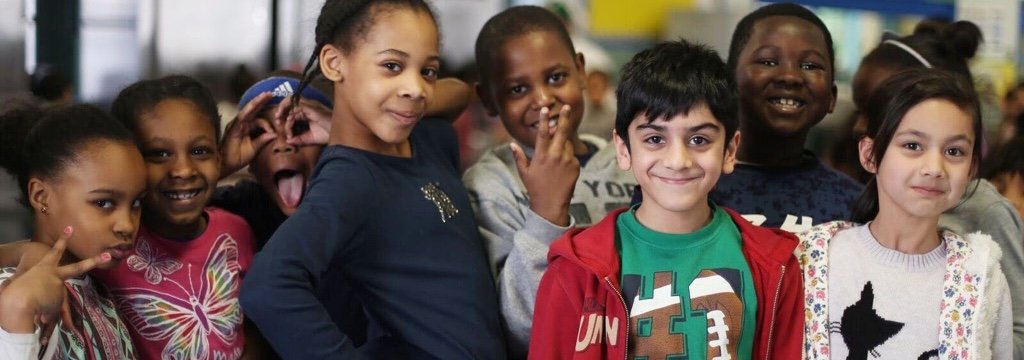Get more from InsideSchools
Central Park East I
Share this school
Manhattan NY 10029
Our Insights
What’s Special
Exploration and discovery-based approach
The Downside
No after school in the building
Walk into Central Park East I, and you may see elaborate cardboard sculptures, smell muffins baking, and hear kids chatting animatedly. For some, this tiny progressive school has too many field trips and not enough math drills; for others, it’s a true refuge, a school taking a stand for discovery and play in a bland, standardized testing world.
Central Park East was founded in 1974 by Deborah Meier, whose work has had a profound effect on education in New York City and beyond. Her belief that schools should be small, humane, democratic places where children learn how to learn, and to think for themselves, helped spark a revival of progressive education in the city and the nation.
Even today, Central Park East represents progressive education in its purest form, beginning with how it mixes children of different ages into one class, for example. There are combined classes for kindergarten and 1st grade, 2nd and 3rd, and 4th and 5th. The two pre-kindergartens stand alone.
Students in all grades participate in "work time,” an open-ended period during which children pursue creative projects, culminating in a fantastic museum, filled with volcanoes, buildings and dioramas. Children also receive music and visual arts instruction more than once a week, a rarity in public elementary schools.
Teachers say much of what is taught here can't be measured by multiple-choice tests. Children study birds in depth. They publish books incorporating their research and create birds out of ceramic, cardboard, paper or fabric. They also build vast cities from wooden blocks and construct puppet theaters with saws and hammers. They sing, dance, and make sculptures of the human body complete with internal organs.
Math lessons are based on the widely-used TERC Investigations which encourages students to find creative ways to solve problems. Teachers also create their own lessons. One parent said her child’s teacher rarely sends home handouts with practice problems in math. To learn about volume, she said, her child measured soil beds in a garden courtyard.
Instead of report cards with letter grades students are given written narratives based on teacher observations. Most families opt out of state exams (65 percent of students opted out of the ELA exam in 2022),
The criticism of CPE over the years—and of progressive education in general—has been that too many children fail to master basic skills such as the multiplication tables, dates in history, spelling, phonics, and writing basics such as punctuation. Some parents say more consistency across the grade levels would be helpful. They maintain It’s hard to get a sense of what their children are learning and what they need to know as they progress from one grade level to the next, especially when they hit the upper grades, and must tackle more advanced work.
Principal Gabriel Feldberg, a former assistant principal at Brooklyn’s PS 10, has worked with staff to address these concerns. Teachers boost reading skills in the younger grades with more phonics, grammar and spelling. Roughly half of all 1st-graders receive extra reading help outside the classroom. Each classroom has at least two full-time adults to provide students with more individual attention.
To increase rigor, 4th- and 5th-graders must now complete research projects called PBATs (performance based assessment tasks). Teachers coach students through the research, writing and editing process. One student did a study on the feasibility of adding an elevator and a ramp to the building to make it more handicapped accessible. Another took on elephant poaching in South Africa.
A downside: There is no after school program in the building but the school recommends free and low cost options nearby. (Lydie Raschka, Interviews and web reports, July 2022)
Read more
School Stats
Is this school safe and well-run?
From the 2024-2025 NYC School Survey
From this school's most recent Quality Review Report
From the 2024-25 School Quality Report
How do students perform academically?
What is the Pre-K like?
From the NYC Program Assessment (CLASS and ECERS-R) Database through 2019-2020
Who does this school serve?
From the 2024-25 Demographic Snapshot
From the 2024-25 School Quality Guide
From the 2020 School Directories
How does this school serve special populations?
From the New York State 2024-2025 Assessment Database
Contact & Location
Location
Contact
Other Details
Was this information helpful?
Get more from InsideSchools
You may also like …
P.S. 38 Roberto Clemente
Manhattan, NY 10029
P.S. 83 Luis Munoz Rivera
Manhattan, NY 10029

Comments